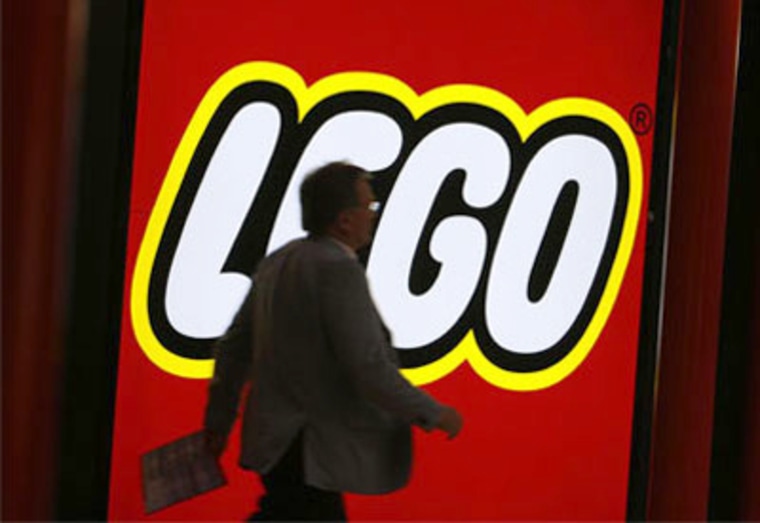With all the bad news recently about corporate scandals you might be forgiven for wondering which companies actually have good reputations.
For the eighth year, Reputation Institute, a New York City-based consultancy and research firm, conducted a study to find the answer. This year's winner is Lego. Yes, Lego, the 70-year-old Danish toy manufacturer, scored No. 1 of 600 companies worldwide.
Sure, you think Lego and fond childhood memories of those clickable plastic blocks come to mind. But what about other feel-good companies like the Walt Disney Co. and Johnson and Johnson? Those companies made the list too — No. 38 and No. 35, respectively. But what did Lego do to beat the competition?
Its high standing likely has to do with a recent turnaround, says Charles Fombrun, executive director of Reputation Institute. Lego got off track a few years ago, he says, venturing into online gaming and movies. It didn’t manage those areas well and, as a result, suffered financially. "They ventured farther afield, and their brand got diluted," says Fombrun. That prompted leadership changes and negative press reports.
In recent years though, "they engineered a turnaround by pruning their lines of business," says Fombrun. "Now what we're seeing is the result of the turnaround. There's more stability."
Other companies that moved up the list are the Swedish furniture company IKEA, which moved from fourth place last year to second. More impressive though was the Spanish grocery chain Mercadona — it moved from 29th place to fourth.
The company attributes the move to the ongoing dialog they have with customers. Mercadona prides itself on listening to customers and implementing their ideas and suggestions.
Another company that increased its reputation standing is Vestas Wind Systems, the Danish manufacturer of wind turbines. Their move is also the result of a turnaround, says Peter Wenzel Kruse, vice president of Vestas communications. In 2004 the company merged with India's NEG Micon. "The merger didn't work out well the first year," says Kruse.
Things changed with a new CEO and senior leadership team. Last year was the first time the company turned a profit. Kruse says Vestas also benefited from a global media strategy — instead of focusing communication efforts on Danish media, it's reaching out to the international media. The company was recently featured in Newsweek, CNN and Bloomberg Television.
Reputation Institute surveyed more than 60,000 people online in 29 countries — participants could only vote on companies based in the country where they live. Of the 600 companies, the mean score is 60 points. Lego received an 85.01 — which the Institute considers excellent. Behind Lego is the Italian pasta, sauce and specialty food company Barilla, which came in third place this year with a score of 84.05. Last year it was in first place.
To determine a company's reputation, the Institute surveyed consumers on seven factors that contribute to a firm's reputation: products and services, innovation, workplace, governance, citizenship, leadership and performance. For the first time, voters counted citizenship as having the strongest effect on reputation. (Fombrun partly attributes that to the fact that the Institute used to include a single category with products/services and innovation. They broke products/services and innovation into two different categories this year.)
"For any company, success is about trust and relationships," says Mike Lawrence, executive vice president of Cone LLC, a strategy and communications agency that specializes in building brand trust. "The biggest reason is technology, which has empowered every consumer to be extremely powerful. Someone who isn't happy with a company can go online and inundate a CEO's e-mail inbox and have people 20,000 miles away ready to boycott."
Another determinant of citizenship is sustainability. That's something Western European companies are much farther ahead on than U.S.-based companies. The study reports Vestas has the highest citizenship score, followed by the Danish electronic component company Danfoss, IKEA, Barilla and Mercadona.
"Making turbines in the eyes of the public by definition makes you a good citizen," says Kruse. "There's no doubt that we're being judged on our product."
One company that didn't fare so well in the survey, though, was oil company Halliburton. They came in second-to-last, behind the Australian Wheat Board.
